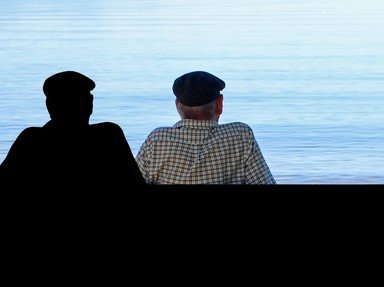Quiz Answer Key and Fun Facts
1. Archbishop of Canterbury and leader of the English Reformation
2. Founder and first Governor of Massachusetts
3. First Prime Minister of Great Britain
4. Poet Laureate of Great Britain and Ireland
5. Canadian philosopher who coined the expression "the medium is the message"
6. Soviet spy, member of the Cambridge Five
7. Actor and comedian; co-founder of Monty Python
8. Cosmologist and author of 'A Brief History of Time'
9. Author of 'The Hitchhiker's Guide to the Galaxy'
10. English Test Cricket captain
Source: Author
looney_tunes
This quiz was reviewed by FunTrivia editor
gtho4 before going online.
Any errors found in FunTrivia content are routinely corrected through our feedback system.
